Wes Anderson's The Phoenician Scheme is a zany father-and-daughter adventure through neocolonialism that I didn't know I needed. Wes has put out his possibly wackiest film to date, which can feel right out of a Saturday morning cartoon but still has that charm we've all come to love. That charm features some of the best color, framing, blocking, production design, and, most importantly, a diverse cast who are all given their time to shine. Benicio del Toro leads this rowdy and gorgeous cast as the closest thing we've gotten to the late, excellent Gene Hackman's performance in Wes Anderson's The Royal Tenenbaums. The Phoenician Scheme continues in Wes's existential search for what truly matters, what we cherish amongst ourselves, and who we want to spend that time on that planet with. That's beautiful, and also, it's cool how many people get blown up in this movie.
The Phoenician Scheme takes place in 1950 when industrialist and arms dealer Zsa-Zsa Korda (Benicio del Toro) has another near-death experience and wants to reconnect with his daughter, now a nun, Liesl (Mia Threapleton). Zsa-Zsa, fearing foreign powers may assassinate him, intends to restructure the infrastructure of Phoenicia and have his daughter take over his business. Zsa-Zsa and Liesl are joined by Zsa-Zsa's tutor, Bjorn (Michael Cera), to travel around the region of Phoenicia and gather support from his investors in wacky ways to make this project happen while avoiding assassination attempts and bureaucratic standstills.
For starters, what a gorgeous film. I may not have felt the emotional impact here, but you can't deny that Anderson's aesthetics are remarkable—the perfect framing and centering of our characters. The color palettes are superb, with impeccable detail in the production design, and using miniatures and old Hollywood techniques is so much fun. The film features several instances where del Toro's character has these afterlife sequences in black and white, and it might be some of Anderson's best work to date when it comes to setting and changing of form, which I was enamored with. The gags of violence here are some of his best, and they had me hollering in the theater from the opening scene. They set the tone for how loony tunes Anderson would go here. It felt like Anderson let himself go a bit, which might be a detractor to some, but I love the energy and joy in The Phoenician Scheme. The soundtrack, a mix of classic tunes and original compositions, adds another layer of enjoyment to the film.
It would not be a Wes Anderson movie without a large and phenomenal cast of characters to fill his universe. Benicio del Toro is our captivating patriarch of this industrial empire, whose father-daughter banter with Mia Threapleton is so entertaining and endearing that I couldn't get enough. The two bantering back and forth throughout the film and coming to love one another by giving up one's ego worked for me. Michael Cera is just pitch-perfect for Anderson's world, and I'm so happy that he's now been added to the catalog. Cera sometimes steals the show with his ridiculous but subtle line delivery, and it's hard for me not to imagine always being in Anderson's movies from now on. The recent additions to Anderson's films, like Tom Hanks, Jeffery Wright, Riz Ahmed, Scarlett Johansson, Bryan Cranston, and Benedict Cumberbatch, all get their moment in the sun to let loose, plus some great cameos from Anderson staples like Willem Defoe, Bill Murray, and F. Murray Abraham. It isn't the greatest joining of powers from his filmography. Still, the highs, such as Hanks and Cranston's basketball game, Mathieu Amalric and Richard Ayoade's robbery sequence at the nightclub, and all the afterlife sequences, are unforgettable.
In recent years, Anderson has been repeatedly criticized for "making the same movie." I don't understand that line of thinking. When I watch something like The Phoenician Scheme and compare it to something like Asteroid City, I see that they are entirely different. These two films are toned and wildly different, exploring various themes and ideas. The Phoenician Scheme dwells on neocolonialism through the lens and eye of Wes Anderson and engages with the horror and insanity in a screwball way. That's an interesting take. It's similar to what Anderson did in The Grand Budapest Hotel, where he did his take on fascism and was possibly criticized for not portraying those horrors to the level that they deserved. Still, I don't agree that it's just a different portrayal of an artist's eye. I don't think the emotional moments in The Phoenician Scheme hit as hard as Asteroid City, but they were at least going for something different. Anderson is trying to see what love we will give to another, and what matters is that it is moving.
The Phoenician Scheme is a riot of fun that taps into It's a Wonderful Life, Lawrence of Arabia, and Indiana Jones, all consumed into one perfectly framed doll house that Wes Anderson wants to be. This wacky adventure has a lot to offer new and old fans of his work, and if you allow yourself to be taken into this new world, there's a lot to offer. I will now take my tweed suit off and rest until Anderson has returned to grace the silver screen.
Finals Score: 8/10
Written by Kevin J. Pettit




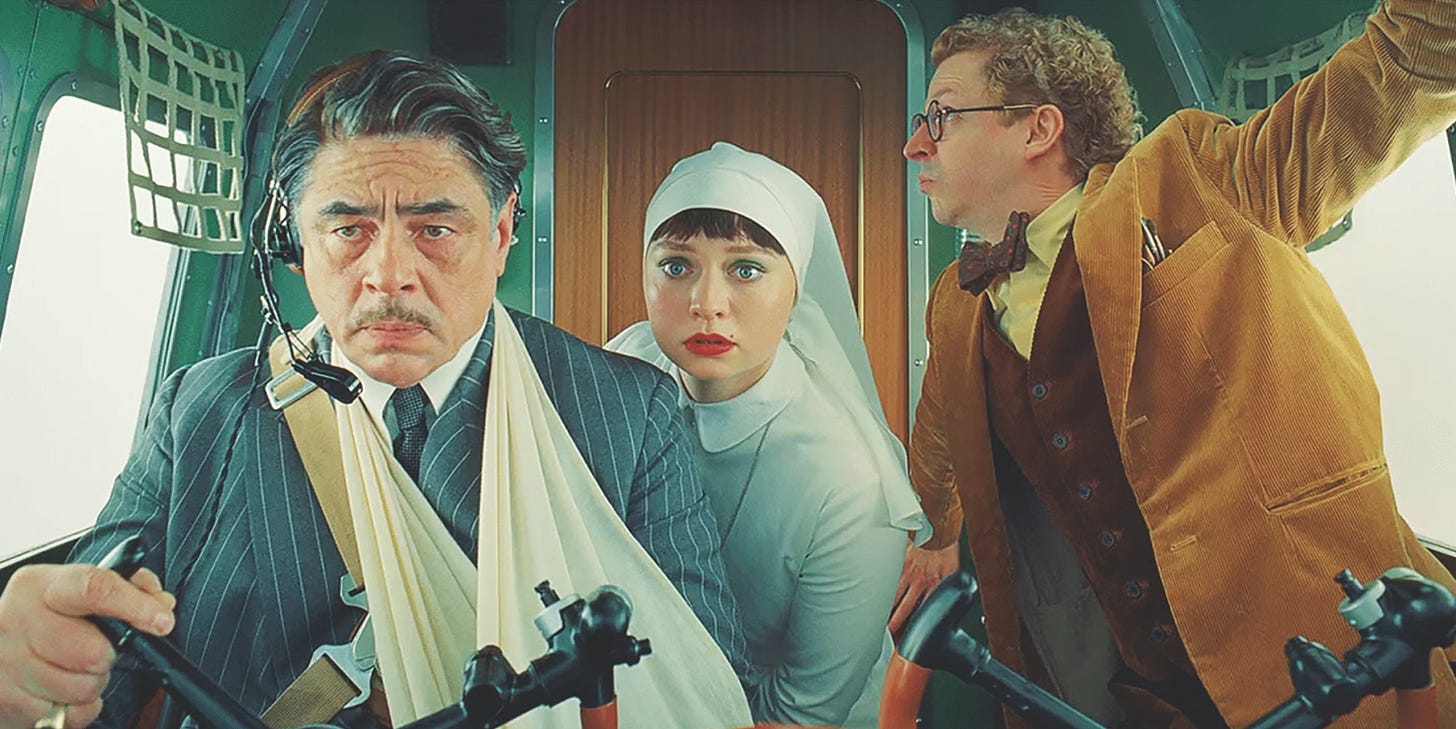
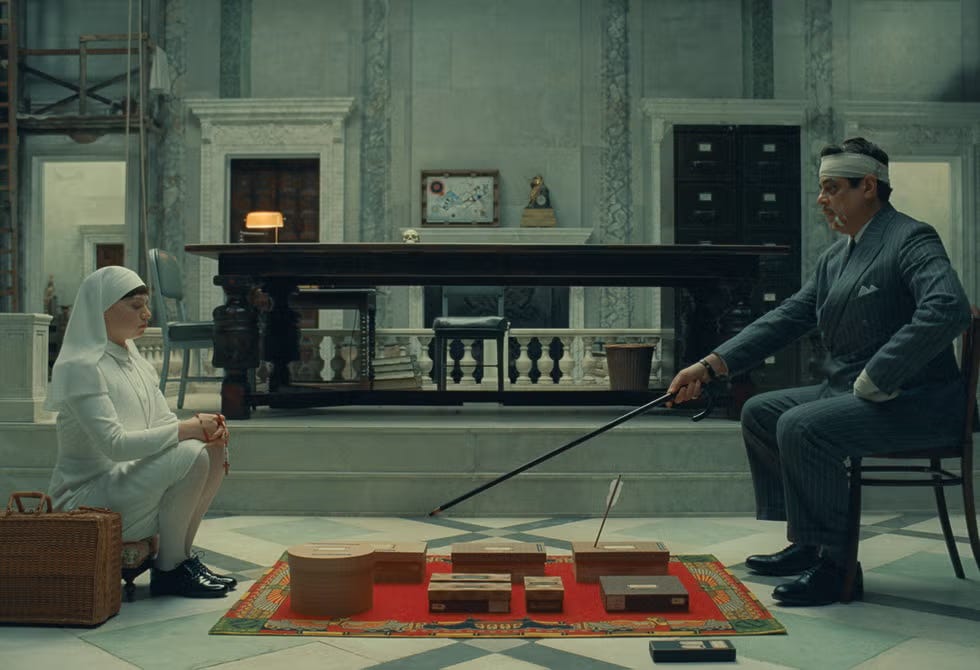
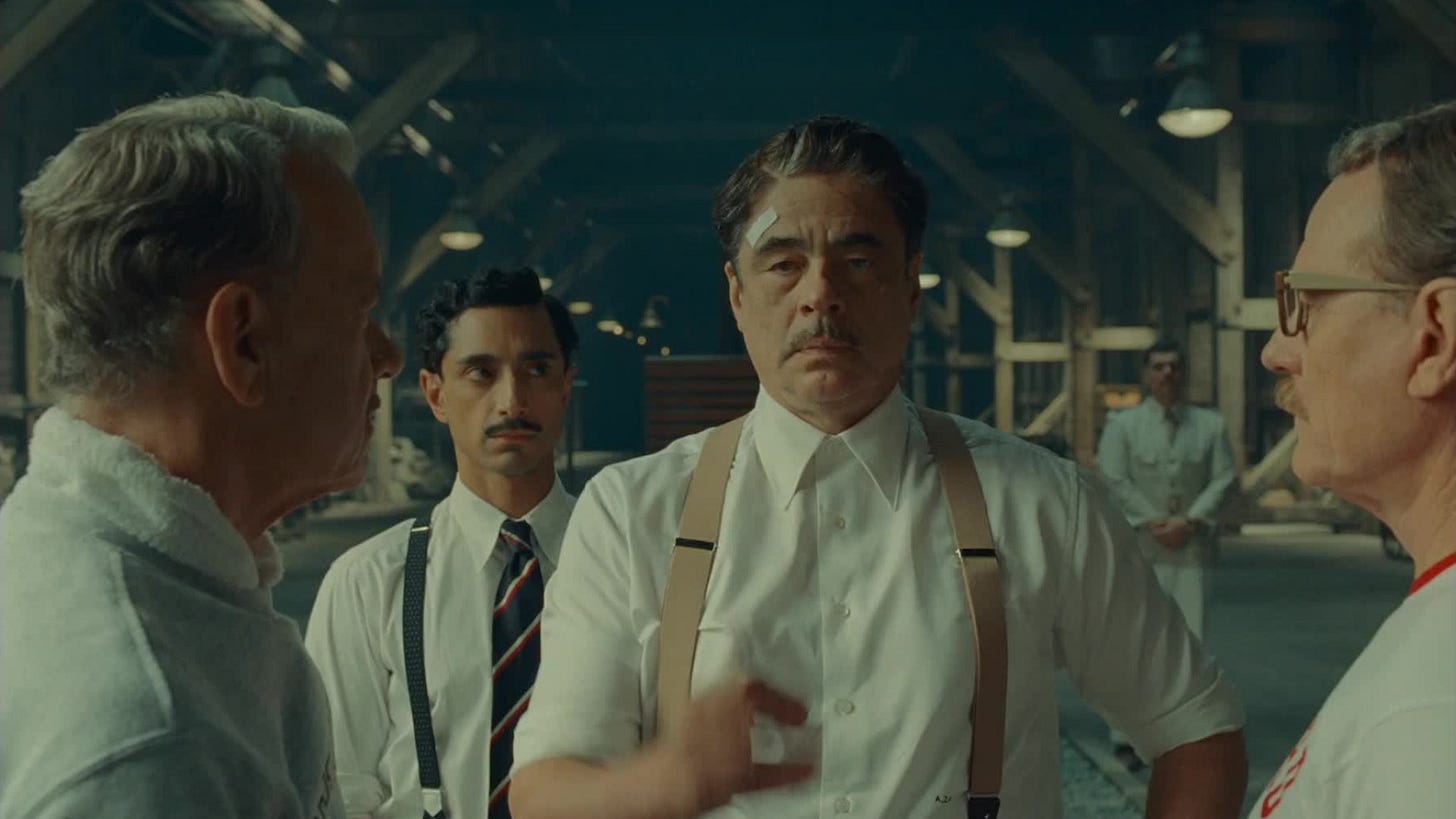
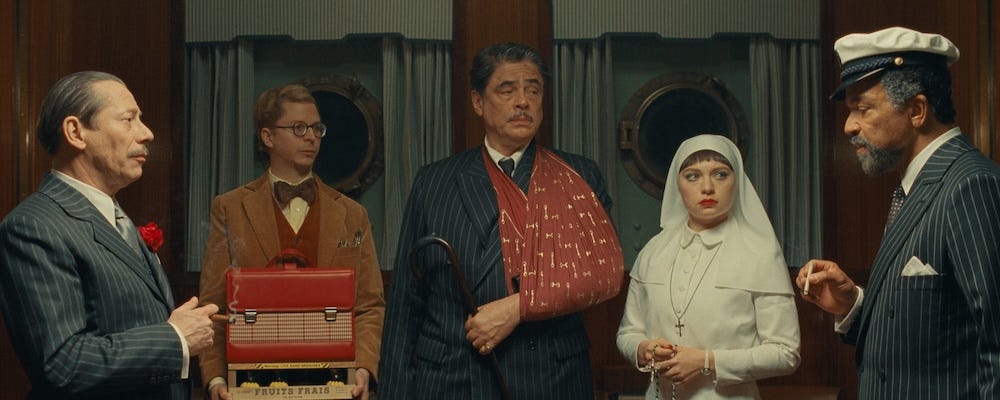

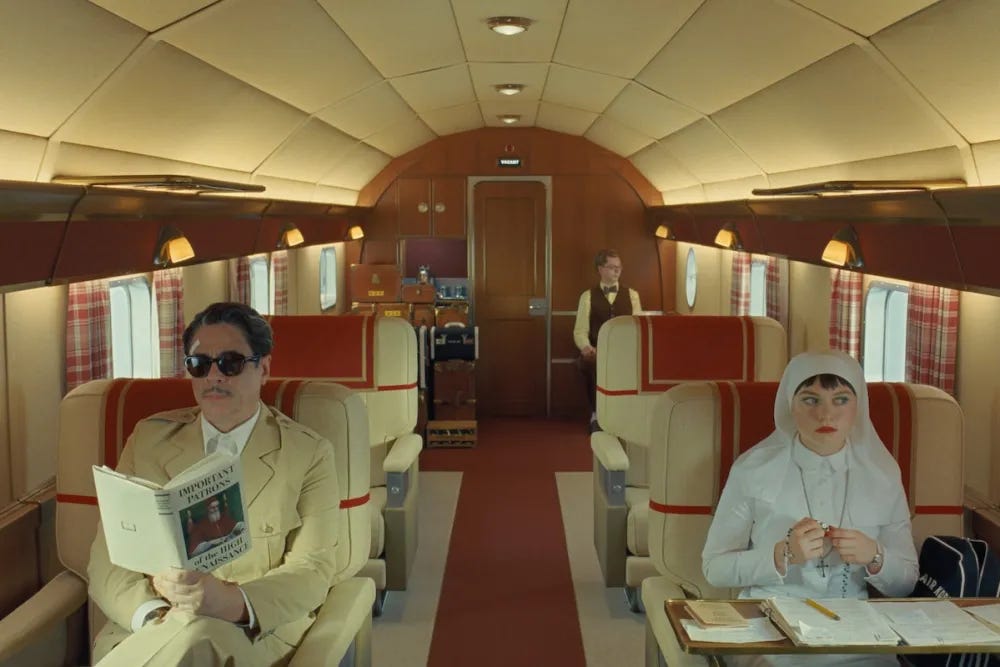
Glad to hear a non negative review. Seems like people go into his movies now expecting them to be bad. Probably seeing it tomorrow.
Brilliant review—cannot wait to see this and so happy to hear a response that’s not disappointment and cries of same old, same old.